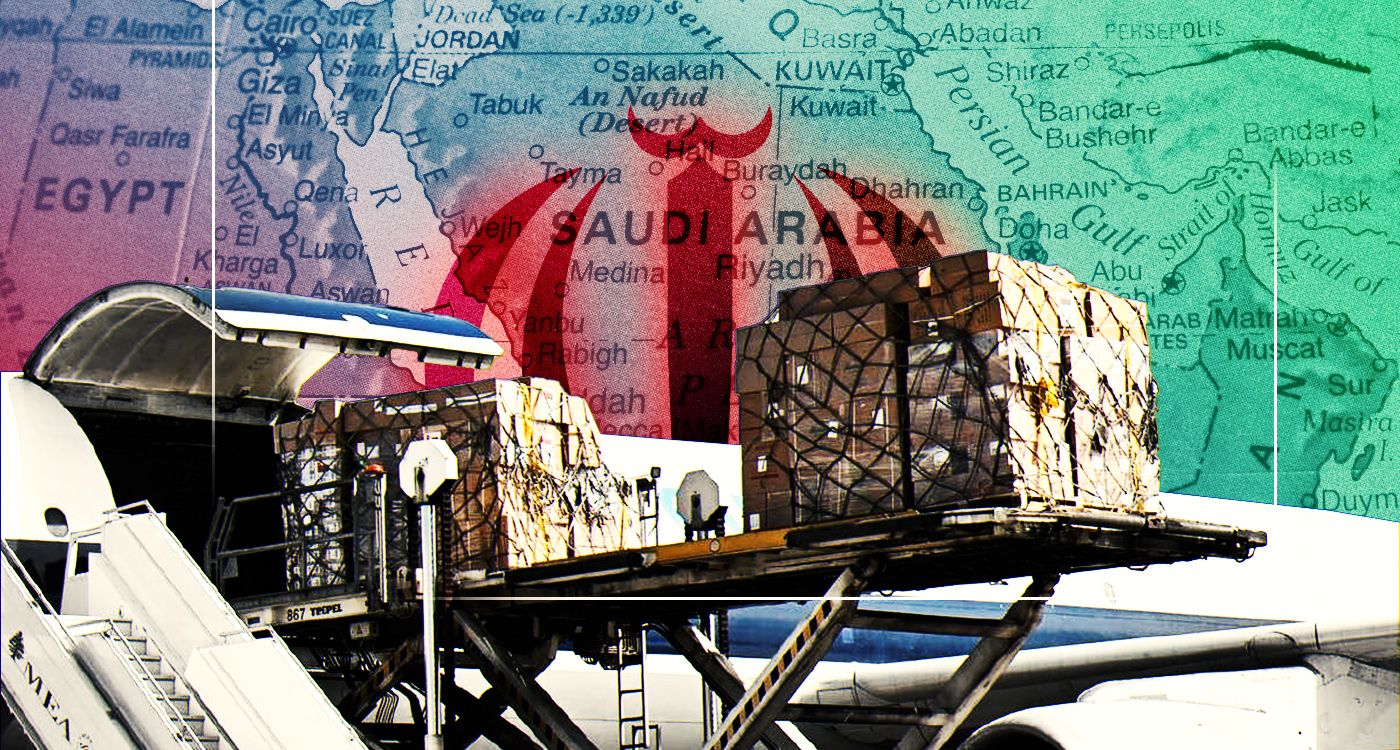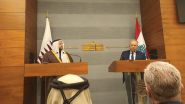
All we get from Iran is “words, words, and words.” Only the Arab nations are Lebanon's genuine supporters and saviors in this crisis!
In just a few days, Lebanon will mark the end of the first bloody month of the brutal war waged by the Israeli Army.
Southern Lebanon has become a scorched landscape, and the Beqaa has suffered equally devastating damage. The southern suburb of Beirut and its surroundings lie in ruins, while the historic market in Nabatiyeh has been completely obliterated by relentless bombardments. Baalbeck and its ancient citadel have also been impacted, with nearby shelling causing some of its stones to crumble. The madness of airstrikes and errant missiles have spared nothing — mosques, churches, hospitals, and ambulances have all been impacted.
This madness has now spread beyond the south and the southern suburb of Beirut to hit the Cola area. Al-Nuwairi and al-Basta have endured devastating strikes, killing and injuring dozens, not to mention the violent attack that struck Bashoura.
Israeli aircraft have broadened their operations to the north, targeting the mountains of Batroun, specifically the town of Deir Billa, after previously carrying out drone strikes on the Beddawi refugee camp.
Thus, Lebanon, spanning 10,452 square kilometers, finds itself under Israeli fire. Alongside the war, economic, social, health, educational, and psychological crises loom on the horizon!
The targeting of the Masnaa crossing and threats to strike Beirut-Rafic Hariri International Airport indicate an impending siege! Meanwhile, the healthcare sector is urgently raising alarms, repeating plea after plea.
Socially, the war has forced over a million Lebanese to move, all of whom have become IDPs (internally displaced people). Shelters can no longer accommodate them, and the greed of landlords has driven rentals beyond what families can afford. Consequently, those forced from their homes have been left to sleep on the streets, watching their properties crumble into ruins through media reports.
In the meantime, Arab countries have been exerting efforts to assist Lebanon. The Kingdom of Saudi Arabia has dispatched the first flights of its airlift, delivering essential humanitarian and medical supplies.
Saudi Ambassador Walid Bukhari confirmed that “the airlift will continue throughout the coming days,” emphasizing that the Kingdom “will spare no effort in helping the Lebanese people, especially during these challenging times.”
The United Arab Emirates (UAE) launched a relief campaign on October 4 to support the Lebanese people, directed by President Sheikh Mohamed bin Zayed al-Nahyan. The campaign titled “The UAE Stands with You, Lebanon” will run until Monday, October 21, engaging community members, government agencies, and private organizations.
To date, more than nine relief flights have arrived in Lebanon as part of the UAE's humanitarian airlift.
Meanwhile, Egypt, under President Abdel Fattah al-Sissi's instructions, has dispatched urgent medical and humanitarian aid to Lebanon.
The Jordanian Armed Forces also sent a cargo plane filled with humanitarian assistance to the Lebanese Army to help them cope with the challenging conditions they are facing.
The European Union has pledged €10 million in humanitarian aid to support those affected by the escalation of hostilities.
Canadian International Development Minister Ahmad Hussein announced that Canada will contribute $10 million.
Additionally, French Foreign Minister Jean-Noël Barrot visited Lebanon to oversee the delivery of humanitarian aid, which includes 12 tons of medical supplies intended for the treatment of a thousand individuals with severe injuries.
Anadolu Agency reported that a Turkish plane carrying medical supplies and assistance has arrived in Lebanon to strengthen the healthcare sector.
Yet, the Question Remains: Where Is Iran?
In light of the flurry in aid efforts, it is crucial to question Iran and its role, considering that Hezbollah is one of its most prominent proxies and has only launched its ‘support front’ for Gaza under Iranian guidance. So, where is Iran today in terms of assistance, even on a humanitarian level?
Thus far, Iran's aid has amounted to little more than statements, accompanied by media reports of an Iranian plane retreating under Israeli threat. In stark contrast, the planes of Iranian Foreign Minister Abbas Araghchi and Iranian Parliament Speaker Mohammad Bagher Ghalibaf have safely landed in Lebanon without any Israeli warnings — perhaps even evading Israeli radar entirely!
To date, Iran's support can be summarized by Araghchi's insistence on linking the Lebanon front with Gaza, a visit that cast a negative shadow over the Lebanese political landscape. We cannot overlook Ghalibaf's solidarity tour in Beirut and the tears he nearly shed for Lebanon and its people.
Ultimately, we have received nothing from Iran but “words... words... and words.” Only the Arab nations are Lebanon's genuine supporters and saviors in this crisis!



Comments